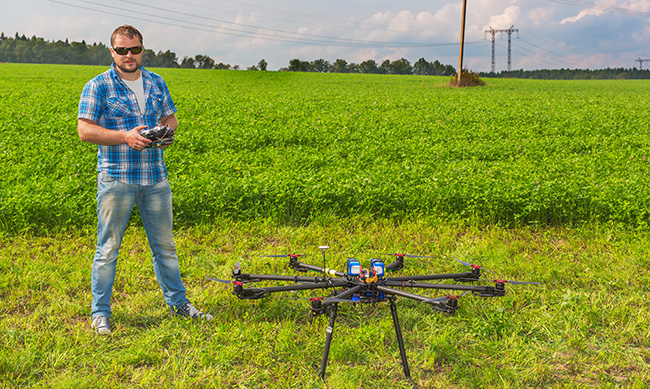Photographers, firefighters, law enforcement, farmers and hobbyists are taking to the skies as drones become more available and affordable. The Federal Aviation Administration estimates more than one million drones were sold in the U.S. during the 2015 holiday season alone. Whether for personal or commercial use, there are a number of critical issues to consider ranging from personal injury and property damage to criminal trespassing that aren’t exactly clear.

While many states are still scrambling to establish laws concerning unmanned aircraft, Idaho took a progressive lead in the creation and adaptation of drone laws back in 2013. Idaho law provides that, absent a warrant, and except for emergencies, no person or state agency can use an unmanned aircraft to intentionally conduct surveillance of or gather information about a targeted person or property without written consent. If you are a drone owner, it’s your job to know and understand your responsibilities and liabilities while flying. Damages occurring from negligent use may not be covered by insurance and can open up the possibilities of lawsuits.
The FAA and you:
With hobby drones weighing as much as 55 pounds, a fall from the sky can cause significant damage to property or bystanders. The FAA has issued these guidelines for drone hobbyists:
- Don’t fly higher than 400 feet and stay clear of surrounding obstacles.
- Keep the aircraft in sight at all times.
- Keep away from manned aircraft operations.
- Don’t fly within five miles of an airport unless you contact the airport and control tower before flying.
- Do NOT fly near people, stadiums, concerts or any large public gathering.
- Don’t fly an aircraft that weighs more than 55 pounds without seeking permission from the FAA.
If you fly, or are planning on flying a drone in Idaho, looking over this information can help you avoid any costly legal or ethical issues.
1) Privacy overview: One of the biggest concerns with the increase in drone ownership is privacy & trespassing laws.
Trespass is defined as “tort against possession committed when one, without permission, interferes with another’s exclusive right to possession of the property.”(a)
Since property in Idaho includes the air space above it, a person flying a drone into airspace owned by another without permission is trespassing. An Idaho private property owner can bring common-law and statutory action for civil trespass, or notify the police that a criminal trespass has been committed.
The laws states: if a person without permission enters the real property of another with notice that such entry is a trespass, “and nonetheless continues his trespass, the landowner plaintiff may be entitled to punitive damages.” And since drones are usually fitted with on-board cameras and other data-collection capabilities, cases of trespassing can easily turn to more serious civil or criminal charges like defamation of character, slander, and even stalking.
2) Damages to person or property: Since drones are operated remotely, there’s no risk to pilot, passengers or crew. However, drones present a significant risk to property and life on the ground in the event of an accident. Drones crash due to inappropriate or irresponsible operation, mechanical defects and component failure. Losses and damages could involve bodily injury to humans and animals as well as buildings and other structures.
3) Damages to your drone: Obtaining insurance for your drone is actually very easy. Private drones used for hobby are generally covered under a homeowners insurance policy (subject to a deductible) which typically covers radio-controlled model aircraft. This also applies to a renter’s insurance policy.
Look at the contents section of your policy, or talk to your agent to see if your drone will be covered if it is lost, stolen or damaged. If your drone falls onto your own car, damage to your car may be covered if you have a comprehensive coverage auto policy. If your personal drone is unusually expensive, you should speak with your agent about adding a rider to your policy to specifically cover it.
Commercial Drone Usage Currently, commercial drones are largely restricted and operations are authorized on an individual basis. The FAA has started regulating commercial drones with proposed rules such as requiring pilots to obtain special drone operation certificates, staying away from bystanders and restrictions on when and where they can fly. Under FAA rules, the only way for a company to fly drones is to apply for an experimental airworthiness certificate, which the agency hands out to groups with research-and-development goals.
Drones and other remote controlled aircraft can be fun toys in the backyard or useful tools for your business, but understanding your legal rights & responsibilities while flying is an essential step in ownership. Following some basic guidelines and showing consideration for your neighbor’s privacy will help you get the most of your aircraft without costly hassles or lawsuits.
a) Idaho Code §§ 6-202; 6-301; 6-302; Idaho Civil Jury Instruction 3.19.1 – Trespasser, definition; and 4.40 – Trespass –issues.